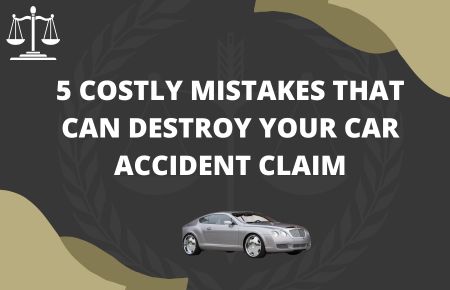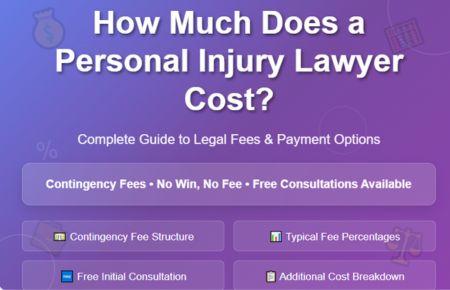What to Do After a Car Accident: Complete Guide and When You Need a Lawyer
Being involved in a car accident can be overwhelming and stressful. Knowing the right steps to take immediately after an accident can protect your health, legal rights, and financial interests. This comprehensive guide will walk you through everything you need to do after a car accident and help you understand when hiring a lawyer becomes necessary.
Immediate Steps to Take After a Car Accident
1. Ensure Safety and Check for Injuries
The first priority after any car accident is safety. Move your vehicle to the side of the road if possible, turn on hazard lights, and check yourself and passengers for injuries. If anyone is injured, call 911 immediately. Even if injuries seem minor, it’s important to seek medical attention as some injuries may not be immediately apparent.
2. Call the Police
Contact local law enforcement to report the accident, even for minor collisions. A police report provides an official record of the incident and can be crucial for insurance claims and potential legal proceedings. The responding officer will document the scene, take statements from all parties involved, and create an accident report.
3. Document the Scene Thoroughly
Take extensive photos and videos of the accident scene, including vehicle damage, road conditions, traffic signs, and any visible injuries. Capture multiple angles of all vehicles involved and the overall accident scene. This documentation can serve as valuable evidence if disputes arise later.
4. Exchange Information with Other Drivers
Collect essential information from all parties involved in the accident, including full names, contact numbers, driver’s license numbers, insurance company names and policy numbers, vehicle make, model, year, and license plate numbers. Be cooperative but avoid admitting fault or making statements about who caused the accident.
5. Identify Witnesses
If there are witnesses present, politely ask for their contact information and a brief statement about what they observed. Witness testimony can be invaluable in determining fault and supporting your version of events.
6. Contact Your Insurance Company
Report the accident to your insurance company as soon as possible, typically within 24 hours. Provide them with all the information you’ve collected and be honest about what happened. Most insurance companies have 24-hour claim reporting hotlines for your convenience.
When Medical Attention is Crucial
Seeking medical attention after a car accident is important even if you feel fine initially. Adrenaline and shock can mask pain and symptoms of injuries. Some injuries, such as whiplash, concussions, or internal injuries, may not manifest symptoms until hours or days after the accident.
Visit an emergency room or urgent care facility if you experience any pain, discomfort, or unusual symptoms. Keep detailed records of all medical treatments, doctor visits, and prescribed medications, as these documents will be important for insurance claims and potential legal cases.
Understanding the Insurance Claims Process
After reporting the accident to your insurance company, an adjuster will be assigned to investigate your claim. The adjuster will review the police report, examine vehicle damage, interview involved parties and witnesses, and determine fault based on the available evidence.
Be cooperative with your insurance adjuster, but remember that they work for the insurance company, not for you. Provide requested information promptly and accurately, but avoid giving recorded statements until you understand the full extent of your injuries and damages.
When You Need a Car Accident Lawyer
While not every car accident requires legal representation, certain situations make hiring an experienced car accident attorney advisable or necessary.
Serious Injuries or Long-term Disabilities
If you or anyone else involved in the accident sustained serious injuries that require extensive medical treatment, surgery, or result in permanent disabilities, you should consult with a personal injury lawyer. Serious injuries often lead to substantial medical bills, lost wages, and long-term care needs that require proper legal evaluation.
Disputed Fault or Liability
When there’s disagreement about who caused the accident or when the other party’s insurance company denies your claim, legal representation becomes essential. An attorney can investigate the accident thoroughly, gather additional evidence, and fight for your rights.
Inadequate Insurance Settlement Offers
If the insurance company offers a settlement that doesn’t adequately cover your medical expenses, lost wages, vehicle repairs, and other damages, a lawyer can negotiate on your behalf or pursue litigation if necessary.
Dealing with Uninsured or Underinsured Drivers
According to the Insurance Information Institute, approximately 13% of drivers are uninsured. If the at-fault driver lacks insurance or has insufficient coverage, navigating the legal options requires professional expertise.
Complex Accident Scenarios
Multi-vehicle accidents, commercial vehicle collisions, or accidents involving government entities often involve complex legal issues that require specialized knowledge and experience.
How to Choose the Right Car Accident Lawyer
When selecting legal representation, consider these important factors:
Experience and Specialization
Look for attorneys who specialize in personal injury and car accident cases. Ask about their experience with cases similar to yours and their track record of successful outcomes.
Fee Structure
Most personal injury attorneys work on a contingency fee basis, meaning they only get paid if they win your case. Understand the fee percentage and any additional costs you might be responsible for.
Communication and Accessibility
Choose a lawyer who communicates clearly, responds promptly to your questions, and keeps you informed about your case’s progress. You should feel comfortable discussing your concerns with your attorney.
Resources and Support Staff
Ensure the law firm has adequate resources to properly investigate your case, including access to accident reconstruction experts, medical professionals, and other specialists who may be needed.
What to Expect When Working with a Lawyer
When you hire a car accident attorney, they will typically handle all communication with insurance companies, investigate the accident thoroughly, gather medical records and other evidence, calculate the full extent of your damages, negotiate with insurance adjusters, and if necessary, file a lawsuit and represent you in court.
Your lawyer should keep you informed throughout the process and involve you in major decisions about your case. They should also provide realistic expectations about potential outcomes and timelines.
Protecting Your Rights After an Accident
To protect your legal rights after a car accident, avoid signing any documents from the other party’s insurance company without legal review, don’t accept quick settlement offers before understanding the full extent of your injuries, keep detailed records of all accident-related expenses and communications, follow your doctor’s treatment recommendations, and avoid discussing the accident on social media or with anyone other than your lawyer and insurance company.
Understanding Compensation Types
Car accident victims may be entitled to various types of compensation, including medical expenses (current and future), lost wages and earning capacity, property damage, pain and suffering, and in some cases, punitive damages.
The value of your claim depends on factors such as the severity of injuries, degree of fault, available insurance coverage, and impact on your daily life and future earning ability.
Statute of Limitations Considerations
Every state has a statute of limitations that limits how long you have to file a personal injury lawsuit after a car accident. According to Nolo’s legal database, these time limits typically range from one to six years, depending on the state. It’s crucial to understand your state’s specific requirements and take action within the required timeframe.
Common Mistakes to Avoid
Many accident victims make costly mistakes that can hurt their cases. Avoid admitting fault at the scene, delaying medical treatment, failing to report the accident promptly, providing recorded statements without legal advice, and settling too quickly before understanding the full extent of damages.
Moving Forward After a Car Accident
Dealing with the aftermath of a car accident can be challenging, but taking the right steps and getting appropriate help can make the process more manageable. Focus on your recovery, stay organized with all accident-related documents, follow your attorney’s advice if you’ve hired one, and be patient as the legal and insurance processes can take time.
Remember that every car accident case is unique, and the best course of action depends on your specific circumstances. When in doubt, consulting with an experienced car accident attorney can help you understand your rights and options without any obligation.
Also Read: How Much Does a Personal Injury Lawyer Cost
Conclusion
Car accidents can be life-changing events, but knowing what steps to take can help protect your health, finances, and legal rights. While not every accident requires a lawyer, understanding when legal representation is beneficial can make a significant difference in the outcome of your case.
If you’re dealing with serious injuries, disputed fault, or inadequate insurance offers, consulting with a qualified car accident attorney can help ensure you receive the compensation you deserve. Remember, most personal injury lawyers offer free consultations, so there’s no financial risk in exploring your legal options.
The most important thing is to prioritize your health and safety while protecting your rights throughout the process. With proper knowledge and appropriate professional help when needed, you can navigate the aftermath of a car accident more confidently and effectively.
Thank you for visiting our website mhnrc.org. If you liked the article, then share it with others.


